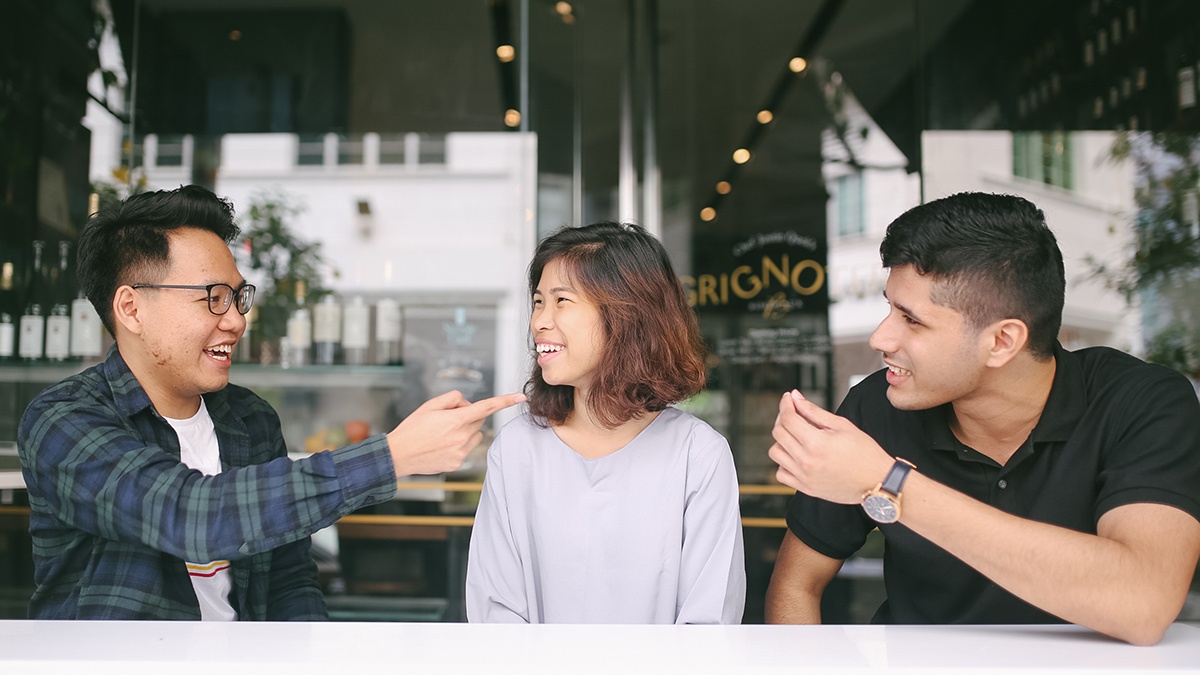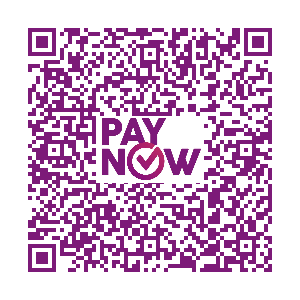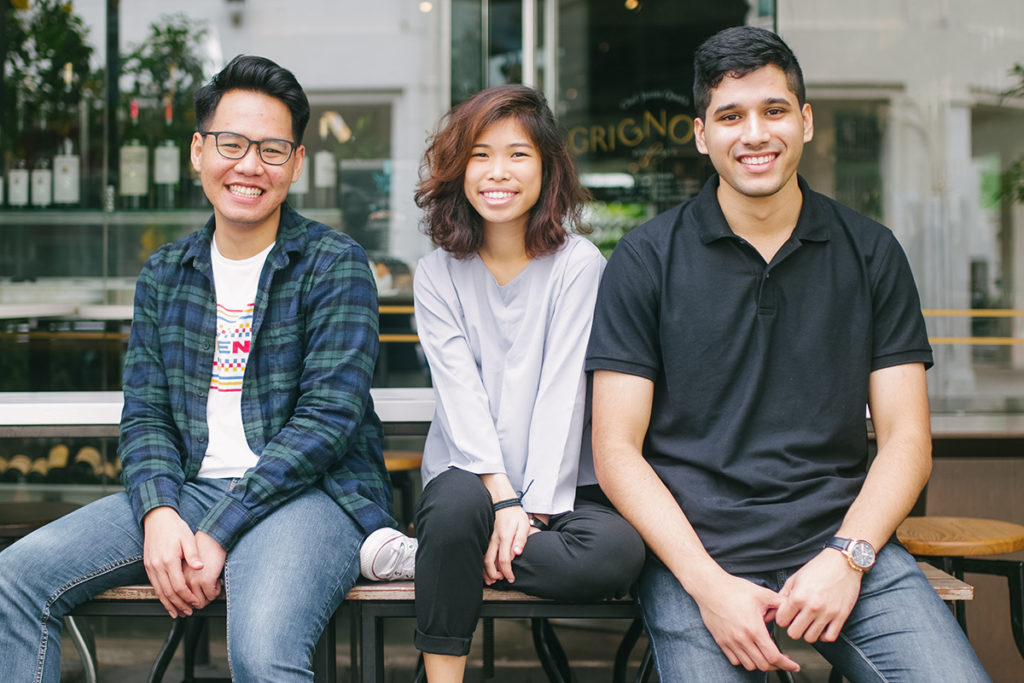
An interview with Amierul Rashid, Xena Goh, Mohamed Feroz (left to right)
Written by Timothy Low, COO, Halogen Foundation Singapore
Let’s begin with something simple: What is influence to you, and who are the people who shaped that perception?
Amierul Rashid (AR): Influence is having the ability to change or have other people consider different points of view. I know influence is often seen as something that is skewed towards positivity, but we need to be aware that influence is as a double-edged sword. It is a neutral term which one can wield positively or negatively, depending on how they want to use that influence – which stem from your core values.
Mohamed Feroz (MF): I will start with the person who I think had the strongest influence in my life, then share what I think is influence. This person is my grandfather. My grandfather is from India, and in his village at the time he was still there, it was common for women to be uneducated. Their purpose was to be married off and to raise a family. But my grandfather didn’t believe in that. He made sure that all five of his daughters received an education and were able to stand on their own feet, not having to rely on a man. I think this is really important especially in that pivotal time in his community. He dared to do something different.
That’s what I think influence is – standing out and being different. This made an impact on my mother, and subsequently on me. I think it’s more like not being a crowd follower, but being different and standing up for what he believed in.
Xena Goh (XG): I am very influenced by two of my close friends, Sarah and Adrian, who come from different backgrounds as I do and take the time to help me understand my perspective. When I used to run camps and events in school, it was frustrating when I couldn’t see eye to eye with my schoolmates.
The conversations I had with Sarah and Adrian helped me to identify my own personal values, and that really shaped my habits and how I interacted with people after.
I’m picking up a common thread around “values”. It gets tricky right, because if individually we all believe our values are right, how does that affect the way we influence others with different values?
XG: Influence is contagious, but different people receive it differently. I think that circumstances and situations matter a lot because it sets the context to how people might receive the intended message.
AR: I can think of how my mother influenced, and that really made me who I am today. She came from a very traditional background and her siblings didn’t place importance on English being a first language. But I recall my mother being very insistent, sticking to her values and taking a stand, ensuring that I was good in my command of English. It’s in the reflection and realising that every small action adds up. All it takes is making that simple and small decision for the effects to be so much bigger than what we initially envision.
MF: I think the integral part of my story is the daring to be different, which is something I want to step into. Not just following the crowd but being brave enough to do something completely different. In my grandfather’s case, what he did was completely different to what people perceived to be right. Today, I get to witness how his actions of standing up for what believed in has changed his community in the village back home, and they are slowly opening up to letting women have the rights to education. He is an inspiration for me to be able to see things in a different light, and do something about what I believe in.
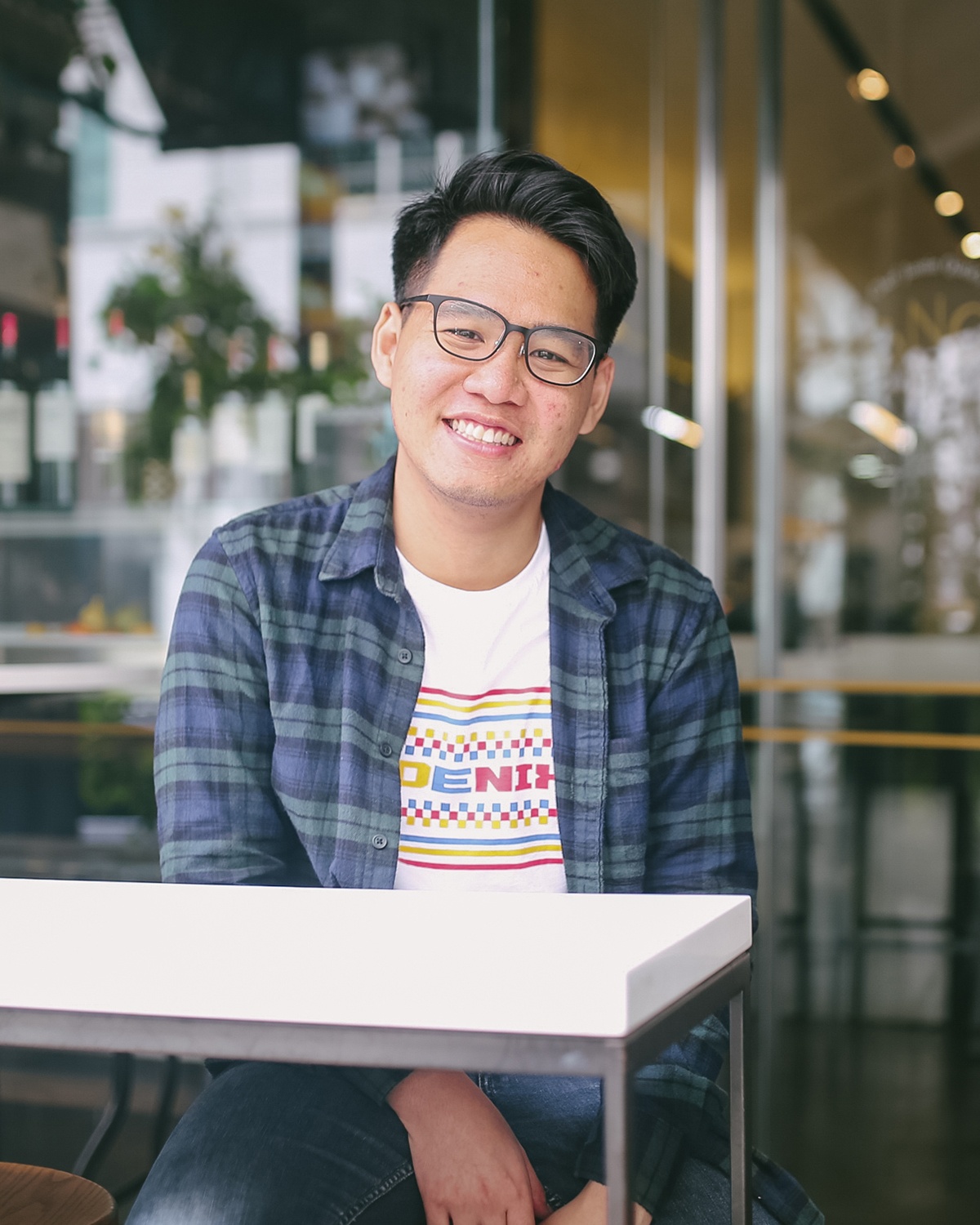

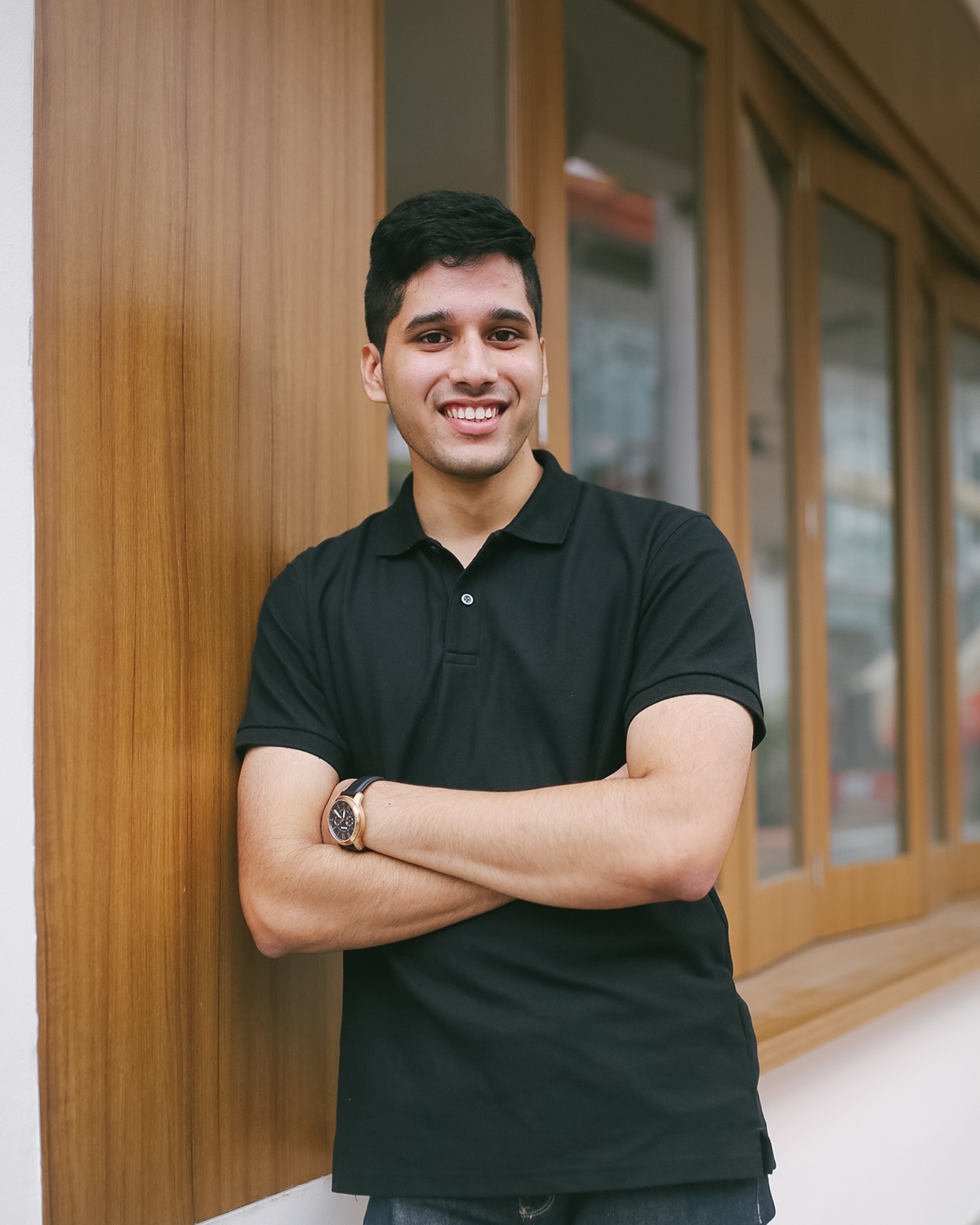
This is something we hear very often with youth right – the intent and empowerment of being different. I recall this quote from a book written by Mr. Lim Siong Guan, “To be different is not the same as being contrarian.” How do you know if you’re being different for a purpose or just being different for the sake of being contrarian?
XG: I don’t think being different is what I strive to be. It’s about knowing your ultimate vision, what you want to achieve, and pursuing that with all that you are. When that happens, you naturally stand out from the crowd and are different without you striving to be different.
AR: I agree – being different should not be your objective but rather the by-product of pursuing what you believe in. I think the more important question of being different is: Why? We have to break it down and find a reason behind the deliberate actions in our everyday life.
MF: Our objective is not to be different. It’s a bonus if we can do things in a different way. But our objective is to lead people in the best way we can and if being different allows us to do that, then we should be open to it. Daring to be different personally means being open to change and not falling into a routine.
AR: That being said, I think that it is important to understand where social norms come from and not be too quick to judge. We can also learn from it in an objective manner by firstly listening to both sides of the story before formulating our beliefs.
XG: It all comes from our why. I just had a conversation with my younger brother – he’s applying to the Student Council in his school, and one of the questions asked was, “What can you contribute to the student council?” After going back and forth about what he should write, I asked him simply: Why did he want to be in the student council in the first place? Why does he want to lead? That gave him clarity because once you identify the reason behind your intention, it will be easier for you to get people on aligned with you.
More than daring, more than introspection, I think there must be a certain amount of personal influence that you are able to exercise and put into place that causes others to follow. If you don’t have that personal impact, it becomes a tiresome message to no one. How do you think a person can exercise that personal influence for whatever cause they believe in?
AR: Being in the digitalised world, the word personal can be understood in many different ways. We are able to have a personal connection with someone we’ve never met before on the other side of the world. This broadens the sphere of influence for someone who is passionate about any particular cause. It goes beyond the face-to-face connection and we are no longer limited by distance to share a heart-to-heart connection with someone over something we believe in. This allows me to have influence in other people’s lives and allows them to also have an influence in my life.
MF: I agree, we’re no longer restricted by geographic locations. I think how you can exercise your personal influence on people is to appeal to common goals. Especially now, when we have access to this level of information, and being able to make more informed decisions. But a challenge now is how we are spoilt for choice in this era of information overload. With this bombardment of information and causes to pursue, it affects the way we follow through with our goals when we become so easily distracted.
AR: It’s all about the follow through. It’s a lot easier to start on something else rather than to see what we have started being completed. That is one of the hurdles that my generation will have overcome. If not, our beliefs and passion for the different causes might not reach its fullest potential because everyone will just be chasing the latest hype or fad. I have to say though that it’s not about a lack of commitment, but that the range of choices actually become disempowering – I end up being frustrated to the point of relinquishing the decision.
XG: I disagree on the disempowerment bit actually. I think it is a choice to not make a choice; a choice to relinquish the decision. That could be why it’s not about having too many choices but how we take it for granted. Perhaps it is a confusion between individuality and identity. A young person can become stuck between wanting to follow the norm, being different, and knowing who you are and what you want to do. What choices help to find our identity? What choices help us find our individuality? With this ever-present question, we end up making a choice to relinquish when we don’t know what to choose.
In wrapping up, could you share one thing you’ve been influenced by while being in Halogen?
AR: I really appreciate the flatness of our organisation structure. That for the leaders to take time to guide me, it is a deliberate action. It taught me that having a positive influence on someone is always a deliberate action, no matter how small the act is.
MF: For me, it’s the willingness of the team to try new things and learn from our mistakes. As I was growing up, when a mistake was made, we would always be punished for it. But here, it is seen as a learning opportunity and we see how we can improve what we have done or pivot. It is a really positive experience to see an organisation being so open to keep learning from our different experiences.
XG: When I first came to Halogen, I was honestly lost. I felt like giving up on myself and my education because I was very confused. Working at Halogen came at the right time, and I became clearer about my purpose and took steps towards my personal growth. One big difference I see in myself is when I speak to people, I always share the purpose behind why we do what we do. I think that is the biggest difference because when you are able to move from understanding the why to conveying the why, you are able to help those around you see the bigger picture of things as well.
